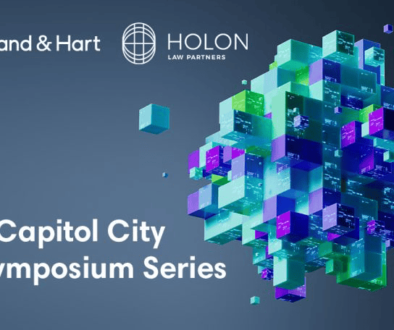Embracing Generative AI in the Workplace: Navigating Necessary Transitions for an Evolving Environment
In today’s rapidly evolving business landscape, companies face a critical juncture: embrace and integrate artificial intelligence (AI) and machine learning (ML) features or risk falling behind. Generative AI, in particular, offers transformative potential, promising efficiency, innovation, and enhanced competitiveness. However, this technological revolution brings with it a host of questions and concerns, especially regarding the future of the workforce. Should employees be fearful? The answer is a resounding no. However, real challenges, growing pains, and adaptation will require acceptance, input, and collaboration from all stakeholders.
Understanding the Challenges
While the benefits of AI are considerable, integrating these technologies also presents significant challenges. The rapid pace of change can lead to uncertainty and resistance among employees. Concerns about privacy, data security, and the ethical use of AI are paramount. Moreover, companies must address the potential for increased inequality between those who can effectively use and access AI technologies and those who cannot. Effective communication and training, thoughtful policy development, and a commitment to ethical AI practices are essential for overcoming these hurdles and ensuring that AI benefits all stakeholders.
Embracing AI as the New Norm
Employees must recognize that AI is not an adversary but a powerful tool that can augment their capabilities. Embracing AI means understanding its potential to streamline workflows, automate repetitive tasks, and open up opportunities for more creative and strategic endeavors. By integrating AI into their daily routines, employees can enhance their productivity and contribute to their organization’s growth in new and innovative ways.
Efficiency as a Key Component of Competitiveness
Efficiency is crucial in maintaining a competitive edge. AI and ML can significantly improve operational efficiency by quickly and accurately analyzing vast amounts of data, identifying patterns, and providing actionable insights. This enables companies to make informed decisions, optimize processes, and reduce costs. For employees, this translates into spending less time on mundane tasks and more time on high-value activities that require human ingenuity and creativity.
AI technologies have become instrumental in transforming business operations across various sectors. For instance, Amazon utilizes sophisticated machine learning algorithms to not only personalize shopping experiences for millions but also to optimize inventory management and streamline logistics. This results in drastically reduced shipping times and lower costs, setting new standards for operational efficiency in the retail industry. Similarly, MasterCard leverages AI to enhance the analysis of real-time transaction data, significantly improving its fraud detection capabilities. This not only mitigates financial losses but also boosts consumer trust and security—crucial elements in the financial services sector. These examples demonstrate how AI can drive substantial improvements in efficiency and competitiveness, underlining the technology’s transformative potential in modern business practices.
Navigating Ethical Waters in AI Integration
The integration of AI into business practices isn’t just a technological or procedural upgrade—it also poses complex ethical questions that need careful consideration. Issues such as data privacy, algorithmic bias, and the potential for increased surveillance in the workplace are critical concerns. For instance, AI systems that make decisions on hiring or promotions could perpetuate biases if not properly designed and monitored. Solutions like transparent algorithmic processes, rigorous bias testing, and continuous oversight are essential to address these ethical dilemmas. Furthermore, organizations must also consider the broader societal impacts, such as the potential for AI to exacerbate income inequality and job displacement among less-skilled workers. Developing ethical guidelines and involving diverse stakeholders in discussions about AI implementation can help mitigate these risks and ensure that AI serves the broader good of society.
Realignment Over Redundancy
One of the most significant concerns regarding AI in the workplace is the potential for job displacement. However, rather than viewing AI as a threat, we should see it as an opportunity for realignment. AI can take over repetitive and routine tasks, freeing employees to focus on roles that require emotional intelligence, problem-solving skills, and human interaction. By reskilling and upskilling, employees can transition into new roles that leverage their unique human abilities, making them indispensable in an AI-augmented environment.
Balancing Human Responsibility and Employer Awareness
A successful transition to an AI-integrated workplace requires a balance between individual responsibility and employer awareness. Employers must recognize the importance of the human element in their operations. This means fostering an environment where employees feel valued and supported, providing them with the necessary training and resources to adapt to new technologies. At the same time, employees must take responsibility for their own growth and development, seeking out opportunities to learn and adapt (IBM – United States).
Transcending and Including Rather Than Replacing
The key to a harmonious integration of AI in the workplace lies in transcending and including. Rather than replacing or discarding human roles, AI should be seen as a complementary force that enhances human capabilities. This approach requires imagination and prediction. By being creative and forward-thinking, both employers and employees can envision new ways of working that incorporate AI while preserving the essence of human contribution.
Meeting the Challenge Head-On
The moral of the story is clear: AI will undoubtedly impact the workforce in meaningful ways. However, by bringing our human consciousness and intelligence into the moment, we can meet this challenge head-on. By embracing AI as an ally, focusing on efficiency, realigning roles, and maintaining a balance between human responsibility and employer awareness, we can navigate this transition successfully.
In conclusion, the integration of generative AI into the workplace is not just a technological shift but a cultural one. It requires a collective effort to reimagine and redefine the way we work. With the right mindset and approach, AI can become a catalyst for positive change, driving innovation and growth while preserving the fundamental human elements that make our work meaningful and fulfilling.
Holon AI
Holon Law Partners is partnering with organizations to assist in the transition towards a human-centered, technology forward, integrated workplace. Reach out to see how Holon AI can support your business community. info@holonlaw.com
Please drop by Holon’s LinkedIn Live event featuring Cameron Powell and Eric Postow, Esq. (Holon AI: Understanding the Impact of Generative AI) on May 21, at 2pm eastern. Info here, https://lnkd.in/e3BA2ztp
Sources and further reading:
- Amazon Machine Learning: Detailed insights into how Amazon uses AI for personalization and logistics management. Available at: Amazon Science – Machine Learning
- MasterCard Security Insights: Information on how MasterCard uses AI to enhance fraud detection. More details can be found here.
- IBM United States: Discussing the balance between individual responsibility and employer awareness in the integration of AI in the workplace. Available at: IBM Case Studies
- AI Now Institute (Year): AI Now Report. An annual report that discusses the current state of AI, focusing on ethical concerns like algorithmic bias, data privacy, and the societal impacts of AI technologies. Available at: AI Now Institute Reports
- The Impact of Artificial Intelligence on Operational Efficiency in Manufacturing, published in the Journal of Manufacturing Systems.
- European Commission. (n.d.). A European approach to artificial intelligence. Digital Strategy. https://digital-strategy.ec.europa.eu/en/policies/european-approach-artificial-intelligence
Holon Law Partners has 100+ years of experience combined guiding clients through complex cases and legal intricacies. Our approach is empathetic, customized, and client-centered with a focus on you and your unique business needs. To schedule a consultation with us, call our team at (866) 372-0726 or email us at: info@holonlaw.com.



